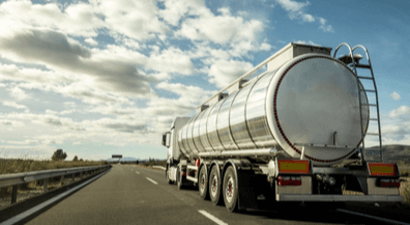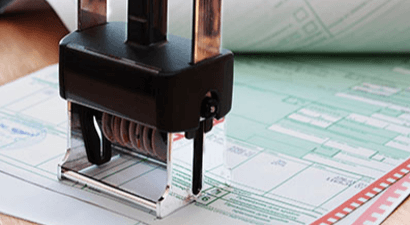The Diesel Fuel Tax Refund System
Introduction
The diesel refund scheme, providing for full or partial relief for the fuel levy and Road Accident Fund levy to primary producers in the agriculture, forestry, fishing and mining sectors was introduced in a phased approach from 2000.
The objective of the scheme is to protect international competitiveness of local industries and reducing the road-related tax burden of the Road Accident Fund levy for certain non-road users participating in certain defined industries or activities.
Due to incongruity between the objectives for the introduction of the diesel refund scheme, the legislation pertaining thereto and the interpretation thereof, persons who are legitimate users of diesel off the road and in the course of carrying out qualifying activities were being excluded from benefitting from the diesel refund scheme. As such the SARS, in conjunction with the Department of National Treasury, considered amending legislation governing the diesel refund scheme in order to align it with its primary objectives. To this end an announcement was made during the 2015 budget speech that a process will be undertaken to review the administration of the diesel refund scheme so as to address the anomalies in the system. Interim amendments, effective from 1 April 2016, were introduced ahead of the longer- term reforms with the objective of resolving issues pertaining to current outstanding assessments, disputed cases and pending litigation.
Review of the Diesel Fuel Tax Refund System
National Treasury and SARS have recently issued a discussion paper for public comment on the “Review of the Diesel Fuel Tax Refund System”.
The following administration concerns were identified during the review process:
• Shared VAT Administration – the use of the VAT system has resulted numerous small scale primary producers, not required to register for VAT purposes, being excluded from the scheme despite the meeting the requirements for participation in the scheme. Joint ventures that share production output between members without making taxable supplies, may not register for VAT and therefore cannot benefit from the scheme;
• Lack of logbook compliance - to qualify for the refund, participants are required to maintain accurate logbooks, including information pertaining to diesel storage and volumes eligible for the refund. A large number of participants, particularly those in the agricultural, forestry and mining sectors have been claiming refunds without maintaining logbooks;
• Authorisations/Permits for primary production – for the purposes of commercial fishing and mining operations a person may only qualify for diesel refunds if such person is a holder of fishing permit or mining right in terms of the relevant legislation. Therefore, qualifying fishing and mining operations that fall within the intended scope of the diesel refund scheme have been denied refunds where the necessary authorisation has been outsourced to contractors, pooled in joint venture partnerships or the issuing of the necessary permits/rights has been delayed by the relevant departments; and
• Outsourcing of operations - primary producers in the agriculture, forestry, fishing and mining spheres outsource a range of operational activities on a regular basis. Under the current legislation, only primary producers are entitled to claim diesel refunds where the primary producer provides the diesel to the contractor on a “dry basis” while any diesel obtained by the contractor itself, referred to as contracting on a “wet basis” has been disallowed. These outsourcing arrangements commonly take the form of either contracting or joint venture partnerships as follows:
o Contracting arrangements are based on service level agreements whereby the contractor charges fees for distinct and limited services rendered, while the financial risk and legal obligations of the enterprise remains wholly the responsibility of the primary producer.
o Joint ventures are contractual partnerships where primary production operations are rendered in exchange for sharing in output or profits. Joint ventures are therefore allowed to register and are treated as vendors under the VAT Act, with the exception of joint ventures that share their output between members without making taxable supplies. Of note is that joint ventures are not recognised as legal entities under the Customs and Excise Act No. 91 of 1964 and as such are precluded from participating in the diesel refund scheme as diesel refund users.
Proposals for Reforming the Diesel Refund System
To address the abovementioned concerns the following reforms have been proposed:
Qualification based on “primary production activities” rather than “users”
Much of the problems hounding the current administration of the scheme are due to emphasis being placed on eligible diesel purchases by qualifying users, rather than on qualifying activities and use. To address this, it has been proposed that the basis of the diesel refund administration is shifted from “allowed users” to “qualifying primary production activities”. The discussion paper provides an indicative list of the type and nature of activities.
Inclusion of contractors
This is aimed at allowing smaller producers and new entrants who lack the necessary funding or experience to benefit from the scheme.
Standalone Diesel Refund Administration System
This is aimed at addressing limitations around entities that cannot claim the diesel refunds due to not being VAT registered. The new system will be phased in through the initial confirmation of current diesel refund registrants followed by the re-registration of all beneficiaries afresh.
Administrative enforcement and participant compliance
Audits under the proposed new diesel refund regime will be risk based, while enforcement will continue to rely on compliance with logbook obligations. Participants will be expected to update and maintain their diesel refund registration profiles electronically for the purpose of validating their claims. Claims that fall outside the scope of a participant’s registration profile will be rejected, identified as a risk and subjected to an audit.
Diesel refunds will only be allowed in respect of diesel dispensed from storage facilities registered with SARS to diesel-powered equipment and vehicles formally on record with SARS. In addition to logbooks, participants will be required to maintain proper service and repair records for such machinery and vehicles. This is aimed at reducing the incidence ghost claims.
Qualifying activities will also be linked to a physical location. It is envisaged that this will enable easier definition of primary activities and monitoring of diesel use to prevent double claims and curb abuse of the system. As such one will see the exclusion of off-site transport and any processing activities, and the introduction of stricter registration and enforcement measures.
Conclusion
The proposed amendments look quite promising. One could see more persons being better positioned to benefit from the scheme thus aligning the legislation and interpretation thereof with the purpose for which it was legislated. One must however be alive to the fact that with the proposed amendments there appears to be more onerous requirements aimed at regulatory compliance, which will come with their own set of difficulties and more scope for SARS to reject claims in the future thus rendering the participation in the scheme less attractive.





